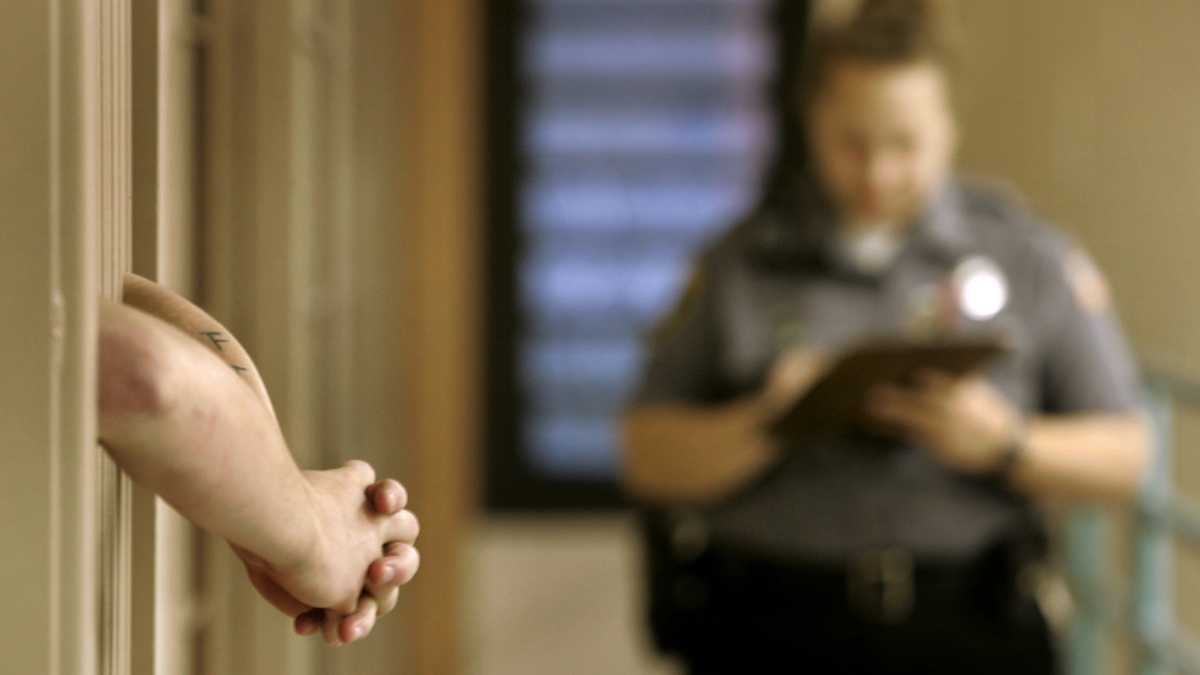Time for a new approach to juvenile sentencing in Philadelphia

(Carolyn Kaster/AP Photo
Philadelphia has come to a crossroads: It can continue to lead the nation in sentencing juveniles to life in prison without parole, or it can join the vast majority of counties and states that have abandoned the practice in favor of more sensible juvenile sentencing practices.
Earlier this year in Montgomery v. Louisiana, the U.S. Supreme Court reaffirmed an earlier ruling in which it determined that giving juveniles mandatory life without parole sentences is unconstitutional, and then the Court went one step further by determining that the decision should be applied retroactively. That means all men and women who were sentenced as juveniles to life without parole should get a court hearing to determine if the sentence is appropriate. The Court emphasized that “appropriate occasions for sentencing juveniles to this harshest possible penalty will be uncommon.” They also noted that life without parole should only be given to “the rare juvenile offender whose crime reflects irreparable corruption.”
The Montgomery decision has serious implications for Philadelphia. The county has sentenced more juveniles to mandatory life without parole sentences than any other county in the country — nearly one in 10 juveniles given this sentence nationwide is from Philadelphia. District Attorney Seth Williams must now determine how he will proceed with the approximately 300 cases affected by the Montgomery decision.
What the Court underscored in its recent decisions is the notion that justice is best served when people found to have broken the law are regarded as individuals when sentenced. Specifically, as it pertains to children, the Court declared that not every person who commits even the most serious crimes automatically deserves to be sent to prison until they die. While giving justice to victims’ families is always a paramount concern in American justice, so too is giving an appropriate punishment based on the characteristics of the offender.
A life sentence is inappropriate
The question Philadelphia and jurisdictions around the country must now face is: “What is the appropriate punishment for each individual who committed a crime as a juvenile?” A new report by the Fair Punishment Project, a nascent initiative of two Harvard Law School institutes, notes several reasons why Seth Williams should reconsider the appropriateness of life without parole sentences for women and men who received the sentence when they were juveniles.
First of all, our brains are not fully developed until we ourr their mid-twenties. The most recent neuroscience shows that young people have a more difficult time recognizing the long-term consequences of their actions and controlling their impulses. The Court has recognized that juveniles cannot and should not be held to the same legal standards of responsibility as adults.
Secondly, when you examine which juveniles are being sentenced to life without parole, there are some very troubling racial disparities. Eighty percent of the juvenile lifer population in Pennsylvania is African-American.
Finally, when reconsidering the fate of juveniles who have been sentenced to mandatory LWOP sentences, many of these individuals have demonstrated over the past several decades penance and remorse of their crimes, that they have changed, and that they are able to help others not make the same mistakes.
The goal should be restorative justice
In my years of experience as a criminal defense attorney, sometimes offenders and victims can work toward reconciliation and healing when an offender is given a chance to reform. This is, after all, one of society’s goals when we sentence people to prison. Denying all hope of redemption can unnecessarily squelch possibilities for restorative justice desired by the victims’ families as well as the offender.
Freddie Nole is an example of how a person who makes a horrible mistake as a teenager can transform himself into a man who can make valuable contributions. At age 17, Freddie regrettably and tragically took a life. In the 47 years he has been in prison, he has established a prison program designed to help prisoners and their families build stronger relationships. In that time, he has also served as a worship leader and received numerous community service awards, including the Spirit of Philadelphia. One only needs to look at his accomplishments to see that Nole is not the same person he was at age 17. Decades of experience show us there are many people like Nole.
With more juveniles sentenced to life without parole in Philadelphia than any other county in the country, the opportunity for a fresh look at the treatment of juvenile offenders looms large for the City of Brotherly Love. District Attorney Williams should embrace this opportunity to chart a new course for Philadelphia, taking into account the Court’s new substantive standard, the latest neuroscience research, and decades of experience that show us that children are capable of incredible transformation, especially after paying their debt to society for the harm they caused. We designed the justice system for restitution and rehabilitation. Philadelphia should heed the call of the U.S. Supreme Court and give all juveniles sentenced to LWOP a new hearing to see if those goals have been met.
—
Stephanie A. Jirard is a former capital defense counsel and is now a professor of criminal justice at Shippensburg University.
WHYY is your source for fact-based, in-depth journalism and information. As a nonprofit organization, we rely on financial support from readers like you. Please give today.

